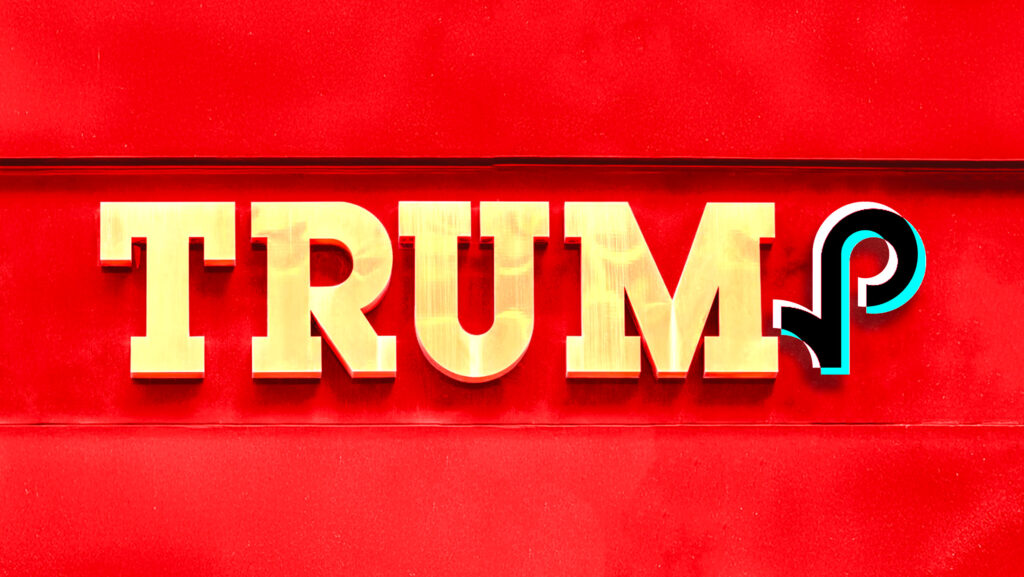Trump Is Using TikTok To Claim Imperial Powers

Since the first day of his second term, President Donald Trump has disregarded an act of Congress banning TikTok in the U.S.
Recently published letters reveal that in doing so, he and Attorney General Pam Bondi claimed astonishingly broad monarchical authority that undermines the separation of powers and rule of law, legal experts warn.
A bipartisan majority in Congress passed the Protecting Americans from Foreign Adversary Controlled Applications Act (PAFACAA) last year in response to concerns that China may be using ByteDance, TikTok’s parent company, to surveil and manipulate Americans.
To ensure a firewall between China and TikTok, Congress sought to force ByteDance to sell off its stake in the app. If ByteDance did not divest, TikTok would be banned in the U.S., and it would become illegal for American tech companies like Apple and Google to offer the app on their online stores.
After ByteDance’s divestment deadline passed and tech companies briefly removed TikTok from their app stores, Trump issued an executive order on his first day in office ordering the DOJ not to enforce the ban.
Trump has since repeatedly extended his order even though the divestment-or-ban law only allows the president to extend TikTok’s sale deadline once by no more than 90 days.
Until recently, what exactly the Trump administration told major tech companies to get them to restore access to TikTok had been unknown. However, dozens of letters recently made public through Freedom of Information Act lawsuits now show that Bondi made vast claims of presidential powers to permit the companies to again offer the app.
First, the attorney general alleged that Article II of the Constitution allows the president to set aside laws passed by Congress if he believes they interfere with his ability to conduct foreign affairs and ensure national security.
Alan Rozenshtein, a University of Minnesota law professor, recently wrote that Bondi’s claim undermines Congress’s Article I power to regulate commerce with foreign nations and could be used to block a whole swath of congressional actions.
“Today it’s a social media app; tomorrow it could be any number of sanctions, trade, or immigration provisions that a president unilaterally decides to ignore based on some generic assertion of foreign affairs authority,” Rozenshtein wrote.
Second, Bondi said that the companies could not violate the PAFACAA, even if they appeared to act illegally, because Trump in his order decreed that “there has been no violation of the statute” and that “there is no liability for any conduct” contrary to the law.
The companies, Bondi wrote, “may continue to provide services to TikTok as contemplated by these Executive Orders without violating the Act, and without incurring any legal liability.” The DOJ was also “irrevocably relinquishing any claims” the U.S. may have against the companies for potential PAFACAA violations, she noted.
In essence, Bondi declared that the president, through the attorney general, has sweeping power to arbitrarily favor companies or individuals and exempt them from federal laws that he believes interfere with his foreign policy powers.
Georgetown Law professor Steve Vladeck noted that this second assertion is analogous to a “dispensing power,” an authority claimed by English monarchs to give proactive pardons to their allies and exempt them from specific laws. That power was formally abolished in the late 17th century.
Despite Bondi’s claim, the president does not have such power. The Founders were well aware of how English monarchs abused the dispensing power and deliberately rejected the concept through the Take Care Clause of Article II, which mandates that the president “shall take Care that the Laws be faithfully executed.”
The Supreme Court also previously held that a dispensing power would violate the separation of powers by allowing the president to assume Congress’ constitutional authority.
“This doctrine cannot receive the sanction of this Court,” the court ruled almost 200 years ago. “It would be vesting in the President a dispensing power which has no countenance for its support in any part of the Constitution, and is asserting a principle which, if carried out in its results to all cases falling within it, would be clothing the President with a power to control the legislation of Congress and paralyze the administration of justice.”
Few of the 431 members of the House of Representatives and the Senate who voted for the PAFACAA have complained about Trump’s repeated extensions. Extremely vocal proponents of the law, such as Sen. Josh Hawley (R-Mo.), have offered only slight pushback.
Democrats who oppose banning TikTok told the White House in a letter earlier this year that it was “unacceptable and unworkable” for the Trump administration to continue ignoring the law and urged the president to work with Congress to formalize an extension.
So far, Trump hasn’t shown any sign of complying with the law or working with Congress. Trump said in late June that “a group of very wealthy people” were ready to buy TikTok but the purchase still needed to be approved by China.
In the meantime, as long as Trump’s extension is in place, so too are his and Bondi’s extreme assertions on presidential power. With each passing day, those assertions risk becoming precedent that Trump could cite while nullifying other laws, experts warn.
“The battle over TikTok is a major rule-of-law crisis in its own right,” Rozenshtein wrote. “But its greatest significance may be how starkly it illustrates this administration’s imperial conception of itself.”